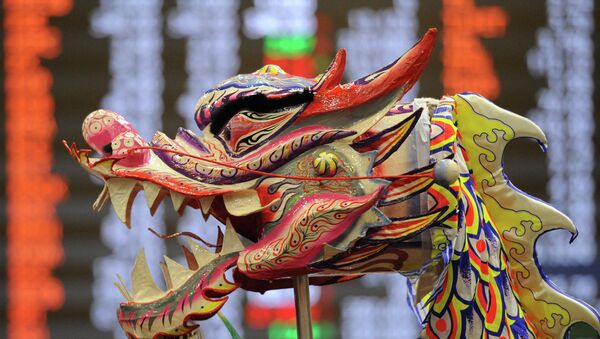China has undergone a lot of changes over the last twenty years, while Washington is clinging to an outdated concept that Beijing is still facing a dilemma whether to join the US-led world order or to remain out in the cold, the Editor of China Brief at The Jamestown Foundation Peter Mattis points out.
"For the last 20 or more years, according to American pundits and policymakers, China has been at the crossroads of its future — politically, economically, and internationally. Placing China at a crossroads is a useful device, because it focuses on Beijing's upcoming decisions and optimistically implies that China still may choose to integrate into the institutions of a US-led international order," Mattis noted.
However, China's actions speak louder than words, the expert noted. Regardless of Washington's displeasure, Beijing has continued to cooperate with North Korea and Iran and has recently established close ties with Russia.
Furthermore, China's New Silk Road and the AIIB (Asian Infrastructure Investment Bank) have clearly indicated that Beijing is pursuing its own geopolitical goals in Asia and is evidently not committed to the "New American Century" concept.
"Contemporary Chinese nationalism in its party-led form is but one of the ways in which Beijing intends international integration to be done on its terms rather than facing the choices we suggest," Mattis remarked.
Contrary to US policymakers' expectations, Beijing has chosen its own unique path, irrespective of Washington's plans to bring it into the American political fold.
"Beijing is not idling at the crossroads," the expert pointed out.
The author expressed his concerns regarding the fact that Xi Jinping's "New Type of Great Power Relations" has received more substantial and serious attention in the US, "than might otherwise be the case." According to Mattis, such an attitude contradicts US interests, as Washington intends to make Beijing a "responsible stakeholder."
"It should not be a point of pride that the United States arguably has pursued the same policy toward China over eight administrations. The cumulative effect of changes in China and the decisions of Chinese policymakers in almost every policy area — to say nothing of East Asia as a whole — surely changed the context for US policy toward China and US-China relations," Mattis emphasized.




